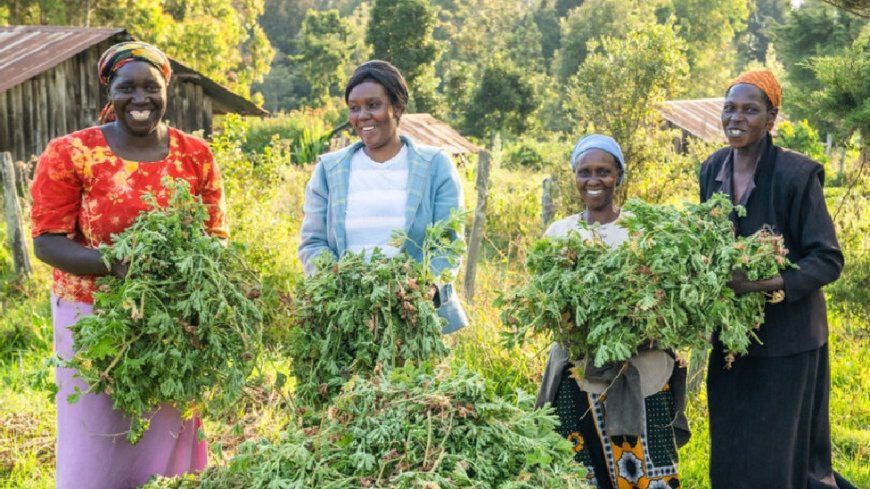Kenya’s sustainable agriculture revolution, a new breath for the Maasai Mara

By Robert Mutasi
Farmers' lives are being changed by a quiet but powerful revolution in the center of the Maasai Mara.
A shift to sustainable farming practices is beginning to take hold in the context of climate change, unpredictable rainfall, and food security.
Farmers are adopting regenerative farm practices, which not only produce but also revitalize the land.
Farmers and environmental activists gathered for the first-ever symposium in a week to learn about sustainable farming practices.
New methods like agroforestry, multifaceted planting, and the use of organic compost were taught to both farmers and enthusiasts as a result of the community's will.
The Maasai have been grazing cattle for centuries, but a new script is emerging that combines old-fashioned methods with modern, ecologically friendly methods.
Sustainable agriculture is having an impact on the Maasai Mara's economy in addition to the environment.
Both domestic and foreign consumers are interested in new, organic produce harvested using regenerative methods as the demand for produce that is ethically and organically produced continues to grow globally.
This has led to the opening of new financial opportunities for farmers.
The timing of the agricultural transformation coincides with a greater surge in ecotourism in the area.
Nature lovers have long flocked to the Maasai Mara because of its amazing wildlife and rich history, and tourism and agriculture have long coexisted in a mutually beneficial relationship.
Tourism and agriculture now work together in a new way because of the growing number of environmentally conscious tourists who come to see wildlife as well as to learn about and support environmentally friendly agricultural initiatives.
New tourism options include organic farmers' markets, farm-to-table tours, and guided tours of regenerative farms.
The government is also helping farmers transition to sustainable farming practices by offering new incentives.
Farmers are using methods that support both short-term food production and long-term environmental conservation more and more because of financial incentives and educational initiatives in place.
Government support for a shift in agricultural development's course reflects a national vision for agricultural reform that serves the interests of both people and the environment.
A dream for a better future, the Maasai Mara agricultural revolution towards sustainability is not just a passing trend.
The community is preserving future food supplies and land for future generations to inherit as they continue to shift toward regenerative methods.
In the Maasai Mara, farmers are demonstrating that sustainability is not just a choice but also a way forward for everyone by combining traditional and modern methods.
What's Your Reaction?


































































































































































































































































































